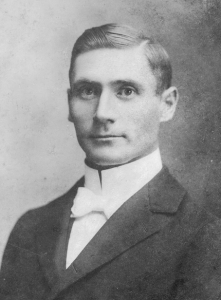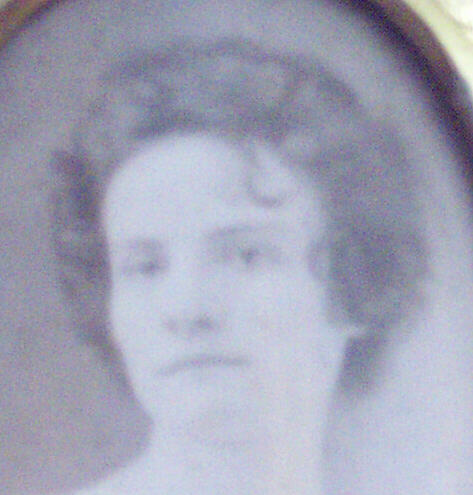The Modern Pastor and “Burn-out”
Counsel to Those who Aspire to the Gospel Ministry in the Twenty-first Century
When I think about the work of the
ministry, I look back on my mother’s father, a Presbyterian minister who
served churches in Alabama, Georgia, Mississippi and Tennessee, at the end
of the nineteenth and first part of the twentieth centuries. How
differently he must have approached his work than I do. He never showed up
at the church building except for services on the Lord’s Day and midweek
prayer meeting. He did not have an office or office hours; he studied at
home and visited his members in their homes in the late morning and
afternoon. People were almost always home, and husbands would leave what
they were doing to join their families when the pastor came to call.
Unless it was some kind of emergency, pastors tended not to make calls
after dark; people were home with their families at night.
People had certain expectations of their pastors, but they were not
unreasonable, because society was stable, divorce virtually nonexistent
and most families practiced self-reliance. The Christian Sabbath was
observed by the whole community by means of Blue Laws, and there was no
television, nor, in the early days, movies either, so people went to
church, attending both the morning and evening services on the Lord’s
Day, and they looked forward to it. Boys could talk to girls after church,
and older people got caught up on the news — along with the Protestant
public school system, the church was the center of people’s social life.
The local Methodist and Baptist preachers believed the Bible, preached
salvation by grace alone and held to the moral standards of the Ten
Commandments. Pastors were not well paid, but they got by, and people saw
that their children did not lack for the necessities of life. My
grandfather had six children who lived into adulthood, and all of them
finished college. The vast majority of people respected pastors, and when
special services were held at a particular church, most of the townsfolk
attended.
Now, I know that I have painted an idyllic pastoral scene, and it was not
all a bed of roses a hundred years ago in the South. My grandfather only
stayed one year at the wealthy Presbyterian Church in Port Gibson,
Mississippi, 1909. Something must have happened between him and that
congregation with the gold hand on top of their steeple. My mother told me
about a banker who was the treasurer of a church pastored by my
grandfather, and the man would browbeat him, almost making him beg for his
salary — one day my grandfather had had enough and said to the banker,
“You look like a monkey behind that cage.” Mama also told me about the
time my grandmother, a child of the manse herself, ran off a woman who had
eyes for my grandfather. The woman was on her way to my grandfather’s
study with a cake, and my grandmother spotted her and asked her to leave.


Pastor Robert Lee Benn, D. D., and his
wife, Ruth Turner Benn,
my mother’s
parents. According to my first cousin, our grandfather “knew
at least four languages, and he and Grandmother (Gangie) were deeply in
love. They wrote stories which they sent to Hollywood and which were later
adapted, without their approval, for Hollywood stories. Anyway, one day,
according to Mamma, some woman in his congregation called up. She was sick
in bed, and without hearing her, Grandaddy said, ‘I’ll be right over.’
He must have been a neatly classical fellow.” (Dr. Benn, like me, was
somewhat deaf.)
How differently I go about my work. I have
a study at home, but I keep office hours, too. Unless the people are
retired or sick, I have to visit them at night, after supper. So with
Sunday and Wednesday nights always committed and other meetings here and
there, I count myself blessed if I have three evenings at home a week.
That was hard on my children, but not nearly as hard on them as my often
having to break commitments because of an emergency. I’ve cut short a
vacation because of a death.
The twenty-first century is a strange time to do the work of the ministry.
Western society is in an upheaval — child molestation, incest,
pornography, homosexuality and adulterous affairs are pervasive. Divorce
is rampant — two of my former elders are now divorced; both are bitter
at me — they are no longer in church. Medical doctors dispense
psychotropic drugs at the drop of a hat, and people who would never think
of sipping a glass of wine, think nothing of zoning out with Zoloft and
Xanex.
Yet among all these people are God’s elect. The task of my grandfather’s
day is still our task today: to call lost people to the Lord Jesus as he
is offered in the gospel, then baptize and teach them whatsoever our Lord
has commanded. But that task is hindered, as it has always been, by people
within the Church itself, sometimes in its leadership. Pity the pastor who
has elders who are dominated by their wives and not respected in the
world. The man who gets kicked around everywhere else and finagles getting
on a church session can make the life of a minister pretty miserable.
Here is what I would say to a minister or to someone who aspired to it.
1. Maintain a devotional love for the person of the Lord Jesus Christ,
making diligent use of the means of grace.
2. Take your sins seriously, but take the gospel more seriously. We are
justified by faith alone. Our sins were put to the Lord Jesus’ account;
his righteousness has been put to ours. Remember that you are far worse
than you think you are, but so is everybody else. You have an impeccable,
unimpeachable righteousness imputed to your account and you can never come
into condemnation.
3. Watch out for women. Many an earnest Christian has made shipwreck of
his faith because of a sexual dalliance. Frankly, I am terrified about the
possibility that I could fall into the sin of adultery, even after all
these years of marriage and ministry. The drive is still there, deep down
in the old man — it scares me to the point that I never step inside the
door of a woman’s home unless her husband is there, or unless I have my
wife or an elder or deacon with me.
4. On the basis of God’s grace plead his promises and expect God to do
grand things, things that he may sometimes permit you to see. Pray
especially for the success of evangelism. Nothing so encourages a person
as seeing lost people come to the Lord Jesus to be set free from reigning
sin.
5. Maintain a healthy relationship with your wife: pray with her; share
problems with her, making her your partner in the ministry, doing much of
your counseling ministry with her at your side; take her out on regular
dates; develop and maintain a healthy, regular sexual life.
6. Take time to be a father to your children. If you have sons, get
involved in something like the Boy Scouts with them.
7. Make yourself accountable to a small circle of brothers.
8. Demonstrate that you love your people — a congregation will put up
with an awful lot if they know that their pastor loves them.
9. Don’t take yourself too seriously. You are an idiot at times, but so
is everybody else. Drink deeply and daily from the Romans 8:28, divine
cordial. God, not the session or your peers, is the ultimate judge of
success in the ministry. You will never get all your work done, but what
God requires of you is faithfulness to Scripture, not cleverness and not
even meeting measurable goals.
10. Choose your battles carefully. If you are going to win the war, you
simply cannot fight every battle. There are a lot of things that you are
going to have to overlook. Establish yourself as a man of God, developing
a strong pulpit ministry. Stress the essential truths of Calvinistic,
Evangelical Christianity. Build on that foundation before you take on more
controversial, peripheral things, because the core of the gospel, with its
backdrop of total depravity and foundation of unconditional election, is
controversial a plenty.
11. Maintain a devotional love for the person of the Lord Jesus Christ,
making diligent use of the means of grace. Yes, I already mentioned that,
but it’s fundamental.
Regularly meditate on the fact that you are a hell deserving wretch, still
after all that God has done for you and in you. “How many things are
necessary for you to know, that in this comfort you may live and die
happily? Three things: First, the greatness of my sin and misery. Second,
how I am redeemed from all my sins and misery. Third, how I am to be
thankful to God for such redemption.” (The Heidelberg Catechism,
2)
Linger over the fires of hell and look at the cross on which our Savior
died, because it is the blood of Jesus alone that washes away your sins.
Fundamentally, what you do — when you do the work of the ministry —
you do to show your gratitude to God for his free gift of eternal life in
Jesus Christ. You never do it, primarily, for the people. They will betray
you, lie about you, deceive you, let you down. You do it for Jesus, and
when you do, many times you will discover that the Great Shepherd has
entrusted to your care some of his choicest sheep.
I will never forget an elderly woman who had never married; Miss Mary was
a member of the church that I served in Kansas back in the early
seventies. She had been a missionary to China, then after Mao, to Japan.
When she was forced to retire, she moved to Wichita and spent her days
riding buses all over town gathering children for Bible clubs, especially
the children of Asian immigrants. She did this until she was too blind to
ride the bus and finally ended up in a retirement home.
I’ll never forget my last visit with her, shortly before she went home.
She couldn’t see and had lost a lot of weight, so much so that her
dentures no longer fit her. She would take a mouthful of food, and when
she did, her upper dentures would drop down, and she had to manipulate
them back up with her tongue at the same time that she carefully put the
food in between her tongue and her dentures. It was most awkward, to say
the least, and I thought about what my attitude might be at her age, in
her nineties. What was her attitude?
Sheer joy! I mean it, sheer joy, joy unspeakable, the real McCoy. I’ve
only known one other person as happy as she, a Chinese lady who had been
imprisoned during the Cultural Revolution. While she and her husband were
imprisoned, Mao’s Red Guards attacked their children, and one was
martyred for the Lord Jesus. This woman exuded the presence of Christ; she
was full of joy, too, in spite of a cupful of tragedies.
Being a minister brings me into contract with such choice sheep from time
to time. I count being a minister the greatest privilege on earth.